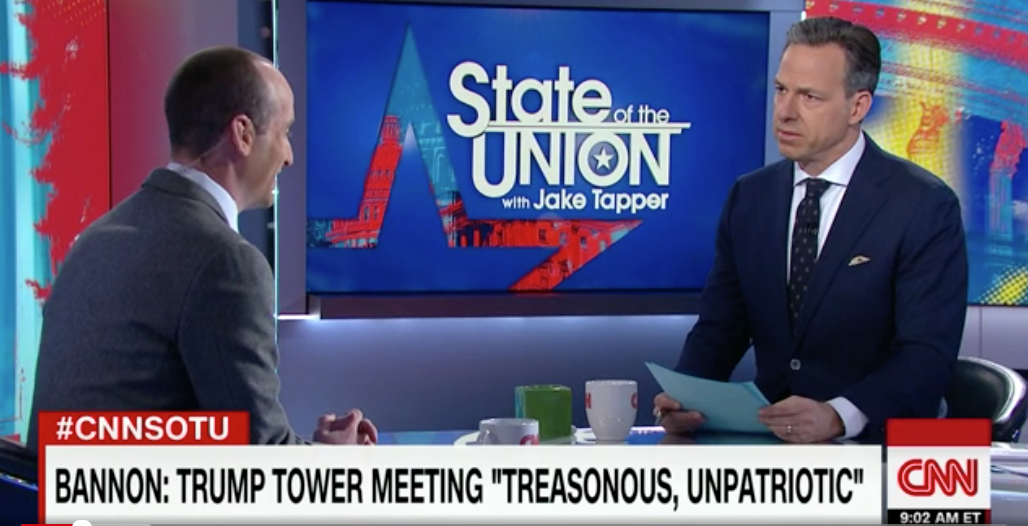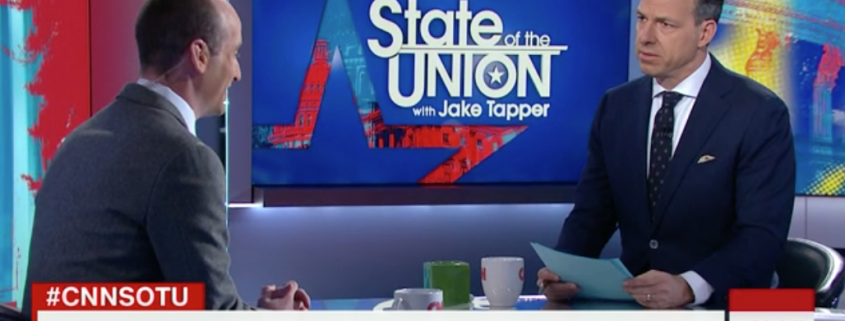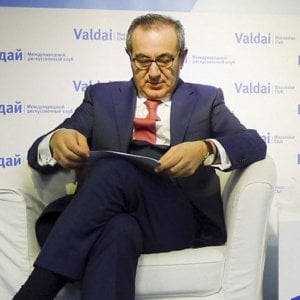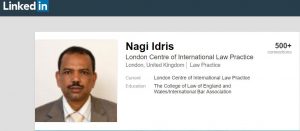In this post I did a timeline of all the known George Papadopoulos communications. The timeline made something clear: on two occasions, Papadopoulos alerted Ivan Timofeev to something in a Trump speech. On each occasion, something happened with emails. And there may actually be a third instance of Papadopoulos signaling to his handler.
April 26 notice of emails precedes Trump’s April 27 speech including a “signal to meet”
First, on April 26, 2016, over breakfast London time, he learned the Russians had thousands of email as dirt on Hillary Clinton.
On or about April 26, 2016, defendant PAPADOPOULOS met the Professor for breakfast at a London hotel. During this meeting, the Professor told defendant PAPADOPOULOS that hehadjust returned from a trip to Moscow where he had met with high level Russian government officials. The Professor told defendant PAPADOPOULOS that on that trip he(the Professor) learned that the Russians had obtained “dirt” on then-candidate Clinton. The Professor told defendant PAPADOPOULOS, as defendant PAPADOPOULOS later described to the FBI, that “They [the Russians] have dirt on her”; “the Russians had emails of Clinton”; “they have thousands of emails.”
The next day he discusses his outreach to Russians with both Stephen Miller and Corey Lewandowski. He emails Miller to say he “Ha[s] some interesting messages coming in from Moscow about a trip when the time is right.” And he emails Lewandowski, apparently asking to speak by phone, “to discuss Russia’s interest in hosting Mr. Trump. Have been receiving a lot of calls over the last month about Putin wanting to host him and the team when the time is right.”
That all happened while Papadopoulos was helping draft Trump’s first speech, in which Trump said,
We desire to live peacefully and in friendship with Russia and China. We have serious differences with these two nations, and must regard them with open eyes, but we are not bound to be adversaries. We should seek common ground based on shared interests.
Russia, for instance, has also seen the horror of Islamic terrorism. I believe an easing of tensions, and improved relations with Russia from a position of strength only is possible, absolutely possible. Common sense says this cycle, this horrible cycle of hostility must end and ideally will end soon. Good for both countries.
Some say the Russians won’t be reasonable. I intend to find out. If we can’t make a deal under my administration, a deal that’s great — not good, great — for America, but also good for Russia, then we will quickly walk from the table. It’s as simple as that. We’re going to find out.
As the NYT revealed the other day, Papadopoulos helped draft that speech, and he told Timofeev that it was the “signal to meet.”
Papadopoulos was trusted enough to edit the outline of Mr. Trump’s first major foreign policy speech on April 27, an address in which the candidate said it was possible to improve relations with Russia. Mr. Papadopoulos flagged the speech to his newfound Russia contacts, telling Mr. Timofeev that it should be taken as “the signal to meet.”
So the Russians mentioned emails, and the next day Papadopoulos delivered a speech that signaled (at least according to Papadopoulos, who at times oversold these things) Trump’s interest in meeting.
July 21 RNC speech precedes the WikiLeaks dump
A second coincidence comes in July. On July 21, a week after Papadopoulos informed Timofeev that a ““meeting for August or September in the UK (London) with me and my national chairman” had been approved, he then messages Timofeev the day of Trump’s RNC speech, saying, “How are things [Timofeev]? Keep an eye on the speech tonight. Should be good.” This message is one of the ones he tried to destroy by nuking his Facebook account after his second interview with the FBI last February.
Trump’s RNC speech included no mention of Russia. But it did include an indictment of Hillary’s actions as Secretary of State, focusing on a number of the issues that lay behind Putin’s loathing of Hillary.
Another humiliation came when president Obama drew a red line in Syria – and the whole world knew it meant nothing.
In Libya, our consulate – the symbol of American prestige around the globe – was brought down in flames. America is far less safe – and the world is far less stable – than when Obama made the decision to put Hillary Clinton in charge of America’s foreign policy.
I am certain it is a decision he truly regrets. Her bad instincts and her bad judgment – something pointed out by Bernie Sanders – are what caused the disasters unfolding today. Let’s review the record. In 2009, pre-Hillary, ISIS was not even on the map.
Libya was cooperating. Egypt was peaceful. Iraq was seeing a reduction in violence. Iran was being choked by sanctions. Syria was under control. After four years of Hillary Clinton, what do we have? ISIS has spread across the region, and the world. Libya is in ruins, and our Ambassador and his staff were left helpless to die at the hands of savage killers. Egypt was turned over to the radical Muslim brotherhood, forcing the military to retake control. Iraq is in chaos.
Iran is on the path to nuclear weapons. Syria is engulfed in a civil war and a refugee crisis that now threatens the West. After fifteen years of wars in the Middle East, after trillions of dollars spent and thousands of lives lost, the situation is worse than it has ever been before.
[snip]
We must abandon the failed policy of nation building and regime change that Hillary Clinton pushed in Iraq, Libya, Egypt and Syria. Instead, we must work with all of our allies who share our goal of destroying ISIS and stamping out Islamic terror.
The focus on Syria is key: remember that Jared Kushner explained his request to Sergei Kislyak for a Russian-run secure back challenge as an effort to cooperate on Syria.
The Ambassador expressed similar sentiments about relations, and then said he especially wanted to address U.S. policy in Syria, and that he wanted to convey information from what he called his “generals.” He said he wanted to provide information that would help inform the new administration. He said the generals could not easily come to the U.S. to convey this information and he asked if there was a secure line in the transition office to conduct a conversation. General Flynn or I explained that there were no such lines. I believed developing a thoughtful approach on Syria was a very high priority given the ongoing humanitarian crisis, and I asked if they had an existing communications channel at his embassy we could use where they would be comfortable transmitting the information they wanted to relay to General Flynn.
So it’s possible the attacks on Hillary’s Syria policy were a signal — as the earlier speech’s call for engagement with Russia apparently was — to Timofeev.
In any case, the next day, WikiLeaks started releasing the DNC emails, just in time to bollox the DNC (though I maintain that forcing the Democrats to finally fire Debbie Wasserman Schultz was a necessary move).
A possible third message?
Which brings us to a possible third signal. Another of the Facebook messages that Papadopoulos attempted to destroy was a link he shared with Timofeev to this interview. Among the other things Papadopoulos says in the interview is that sanctions on Russia have hurt the US.
Q.: Do you agree that the U.S. sanctions against Russia did not help to resolve the crisis in Ukraine?
A.: Sanctions have done little more than to turn Russia towards China as a primary market for Russian goods, services and energy. It is not in the interest of the West to align China and Russia in a geopolitical alliance that can have unpredictable consequences for U.S. interests in the South China Sea, Eastern Mediterranean and Middle East.
[snip]
Q.: Your professional background is related to global energy. Do you agree that European countries should reduce their dependence on Russian energy?
A.: The U.S. and Russia will compete over both the European and Pacific gas markets. This is inevitable. Unfortunately for the U.S., sanctions on Russia have resulted in massive energy deals between Russia and China.
Papadopoulos also poo poos the idea of expanding NATO.
Q.: How do you see the future of NATO? Do you support a further expansion of the alliance? If so, do you think that NATO should take into the account Russia’s concerns regarding this issue?
A.: If NATO is to expand, all new members must spend the required 2% of GDP on defense expenditure. Currently only five members do. Without a common mission that all countries subscribe to, or the pledge that all members spend 2% of GDP on defense, the alliance in its current form is likely not sustainable. The three largest threats NATO will have to combat over the next couple decades will be a rising and belligerent China, radical Islam and a nuclear Iran. Russia can be helpful in mitigating the dangerous consequences of these three forces colliding simultaneously.
Q.: You did not answer the question on whether you would support a possible NATO extension or not. Russia has repeatedly expressed its concerns about NATO’s military infrastructure moving toward Russia’s borders…
A.: We should look at the circumstances. If mutual confidence between our countries exists, then we will better understand the expectations of each other, and we can more accurately define the ‘red lines‘ which cannot be crossed. However, what is happening today between Russia and NATO, and between Russia and the West in general, creates an extremely dangerous and unstable situation in which every incident could become fatal.
An interview with a policy advisor is nowhere near as momentous as a speech from Trump. But by this point — the NYT informs us — Papadopoulos’ interventions were being reviewed closely by the campaign. So it’s likely this was closely vetted.
Papadopoulos shared that link on October 1. Later that week, the John Podesta emails started coming out.
The timing wasn’t dictated by these speeches
Let me make something clear: I’m not saying that the timing of these email releases were dictated by the speeches. Of course they weren’t. They were timed to do maximal damage to the Hillary campaign (not incidentally, in a way that coincided with the “later in the summer” timing Don Jr asked for in his communications with Rob Goldstone).
Rather, I’m saying that Papadopoulos seems to have been signaling Timofeev, and those signals closely mapped to email releases.
And those signals are among the things he tried to destroy.











